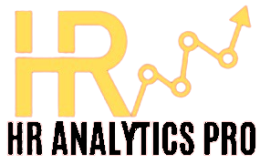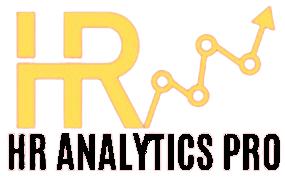HR Analytics: Unveiling Dashboarding, Predictive Analysis
July 24, 2023 2024-03-01 13:41HR Analytics: Unveiling Dashboarding, Predictive Analysis
HR Analytics: Unveiling Dashboarding, Predictive Analysis
In the realm of human resources, mastering HR analytics is akin to acquiring a superpower. It allows organizations to predict future trends, understand current scenarios, and make informed decisions. HR analytics, particularly through dashboarding and predictive analysis, is revolutionizing the way HR departments operate worldwide.
The Importance of HR Analytics
HR analytics provides a deep dive into employee data to help organizations make informed decisions about their workforce. By analyzing patterns and trends, HR departments can optimize recruitment, improve employee retention, enhance performance, and boost overall organizational effectiveness.
Unveiling the Power of Dashboarding
Dashboards are an essential tool in HR analytics. They provide a visual representation of key data and metrics, allowing HR professionals to monitor the health of the organization at a glance. Customizable dashboards can track everything from employee turnover rates to the effectiveness of recruitment channels, providing a clear picture of what’s working and what’s not.
The Predictive Analysis Revolution
Predictive analysis takes HR analytics a step further by not just reporting on the current state of affairs but predicting future trends based on historical data. It can forecast potential employee turnover, identify candidates who are most likely to succeed in a role, and help in planning workforce requirements. This foresight enables organizations to be proactive rather than reactive, ensuring they are always one step ahead.
Implementing HR Analytics
While the benefits of HR analytics are clear, implementing it can be a challenge. It requires a strategic approach, starting with identifying key metrics to track, ensuring data quality, and then selecting the right tools and technologies. Training and a culture that values data-driven decision-making are also crucial.
Building the Right Team
A successful HR analytics function requires a team with a mix of skills, including HR knowledge, statistical analysis, and business acumen. This team is responsible for not only analyzing data but also interpreting it in the context of the business and making recommendations.
Ensuring Data Privacy and Ethics
As with any data-driven initiative, privacy and ethical considerations are paramount. Organizations must ensure that they are compliant with data protection regulations and that they are using data ethically, respecting employee privacy while gaining valuable insights.
The Future
The future of HR analytics is bright, with continuous advancements in technology providing more sophisticated tools for data analysis. Artificial intelligence and machine learning are set to play a significant role, offering even more powerful predictive capabilities and personalized insights.
In conclusion, mastering HR analytics allows organizations to understand their workforce at a deeper level, predict future trends, and make informed decisions that drive success. As HR continues to evolve into a more strategic function, the role of analytics will only become more critical. Organizations that invest in HR analytics today will be the leaders of tomorrow, with a workforce that is as data-driven as it is dynamic.







